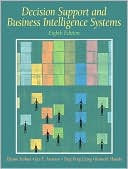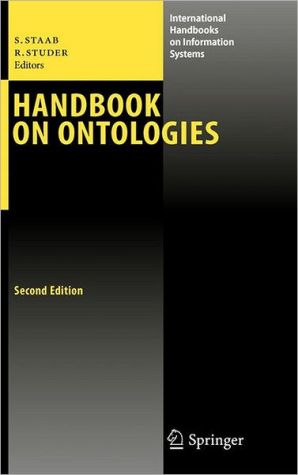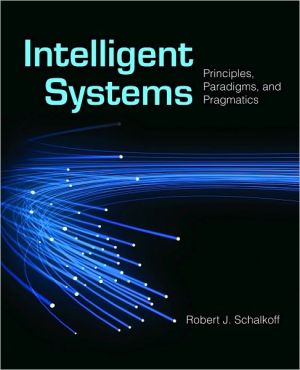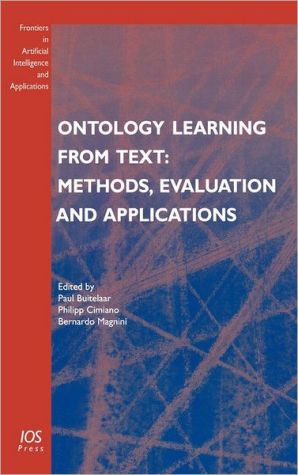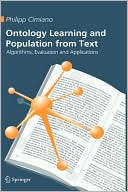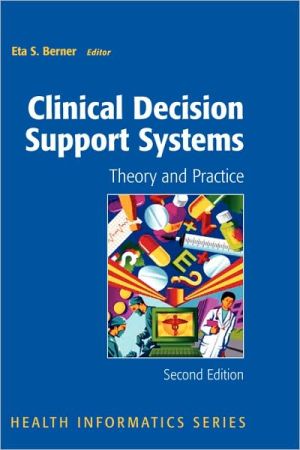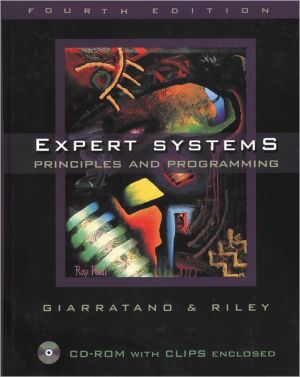Knowledge Representation and Relation Nets
Knowledge Representation and Relation Nets introduces a fresh approach to knowledge representation that can be used to organize study material in a convenient, teachable and learnable form. The method extends and formalizes concept mapping by developing knowledge representation as a structure of concepts and the relationships among them. Such a formal description of analogy results in a controlled method of modeling 'new' knowledge in terms of 'existing' knowledge in teaching and learning...
Search in google:
Knowledge Representation and Relation Nets introduces a fresh approach to knowledge representation that can be used to organize study material in a convenient, teachable and learnable form. The method extends and formalizes concept mapping by developing knowledge representation as a structure of concepts and the relationships among them. Such a formal description of analogy results in a controlled method of modeling `new' knowledge in terms of `existing' knowledge in teaching and learning situations, and its applications result in a consistent and well-organized approach to problem solving. Additionally, strategies for the presentation of study material to learners arise naturally in this representation. While the theory of relation nets is dealt with in detail in part of this book, the reader need not master the formal mathematics in order to apply the theory to this method of knowledge representation. To assist the reader, each chapter starts with a brief summary, and the main ideas are illustrated by examples. The reader is also given an intuitive view of the formal notions used in the applications by means of diagrams, informal descriptions, and simple sets of construction rules. Knowledge Representation and Relation Nets is an excellent source for teachers, courseware designers and researchers in knowledge representation, cognitive science, theories of learning, the psychology of education, and structural modeling. Booknews Intended to provide a means of organizing study material in a convenient and teachable form, this volume begins with an introduction to the idea of a relation net and addresses its application in knowledge representation. Only a restricted case of relation nets, called Concept-Name-Relationship (CNR) nets are dealt with in this part. From it is defined a structure called a formal schema, and thence a Concept-Relationship-Knowledge Structure (CRKS), which is presented in detail in the second part. The third section develops the theory of relation nets, showing that CRKS theory is based on a broad mathematical foundation. Each chapter begins with a brief extract and is supported by references. Suited to research workers in knowledge representation, cognitive science, science and mathematics education, theories of learning, the psychology of education, and structural modelling. Annotation c. Book News, Inc., Portland, OR (booknews.com)
PrefaceAcknowledgmentsPt. IStructural Modelling Of Knowledge1Some Approaches to Knowledge Representation32A Labelled Digraph Model for Knowledge Representation233Cascades, Formal Schemas, and Derivability394Knowledge Structures555Presentation Strategies for CRKS's676Accommodations and Analogy897An Example of Structural Analogy1018Modelling New Knowledge1199Models of Reasoning14510Potential uses of the CRKS Model159Pt. IIA CRKS for a Programming Language11An Example of a CRKS173Pt. IIIRelation Nets12Introduction to the Theory of Relation Nets19313Connectedness and Vertex Bases20914Vulnerability21515Connectivity23316Subnets and Factorization253Appendix AA Partial Model of CRKS Theory261Appendix BList of Constructional Schemes265References269Index277
\ BooknewsIntended to provide a means of organizing study material in a convenient and teachable form, this volume begins with an introduction to the idea of a relation net and addresses its application in knowledge representation. Only a restricted case of relation nets, called Concept-Name-Relationship (CNR) nets are dealt with in this part. From it is defined a structure called a formal schema, and thence a Concept-Relationship-Knowledge Structure (CRKS), which is presented in detail in the second part. The third section develops the theory of relation nets, showing that CRKS theory is based on a broad mathematical foundation. Each chapter begins with a brief extract and is supported by references. Suited to research workers in knowledge representation, cognitive science, science and mathematics education, theories of learning, the psychology of education, and structural modelling. Annotation c. Book News, Inc., Portland, OR (booknews.com)\ \


